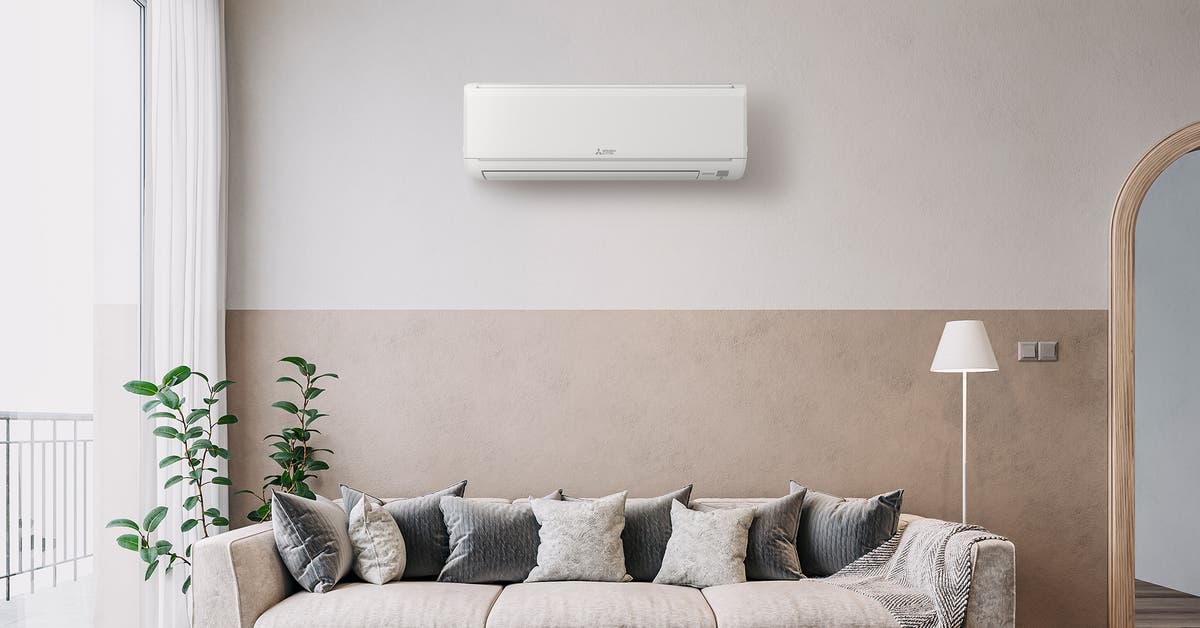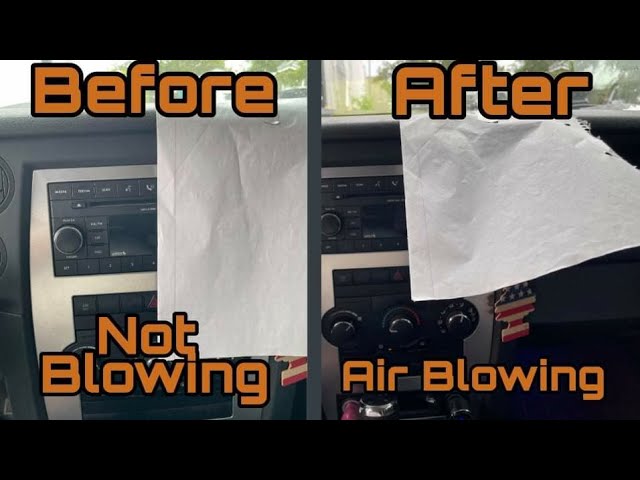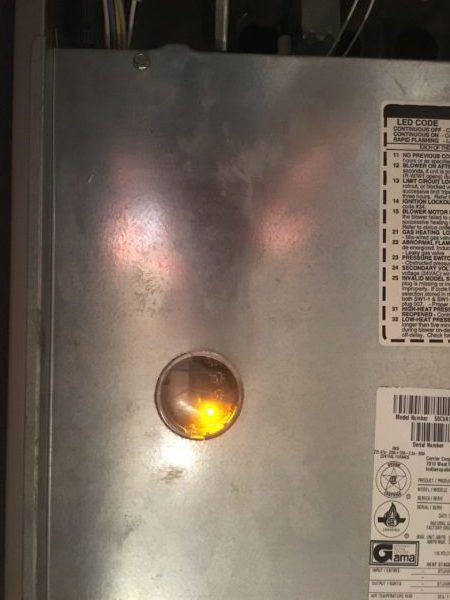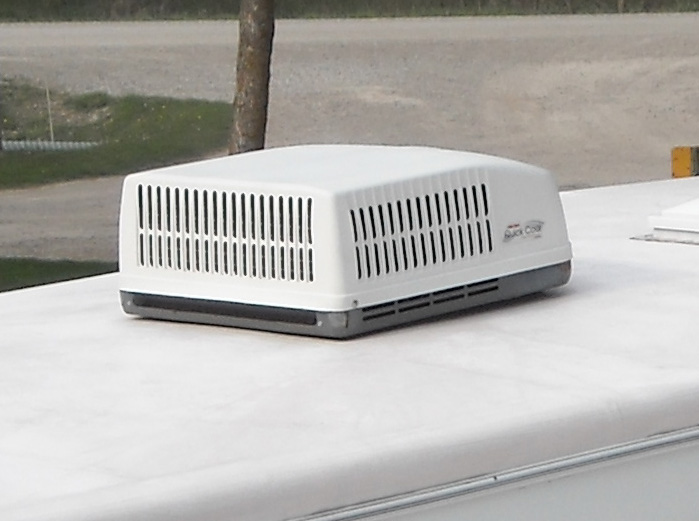Mitsubishi Mini Split Leaking Water: Fix it Fast with these Expert Tips!
If your Mitsubishi mini-split is leaking water, it could be due to a dirty air filter, clogged condensate line, cracked drain pan, or refrigerant leak, impacting energy efficiency and potentially causing water damage. Checking and replacing filters, ensuring proper installation, and unclogging drain lines are some potential solutions.
1. Common Causes Of Mitsubishi Mini Split Leaking Water
A Mitsubishi mini split may leak water due to various reasons, including a dirty air filter, clogged condensate line, cracked drain pan, or refrigerant leak. Addressing these issues is crucial to maintain the energy efficiency of the AC unit and prevent water damage.
If you notice water leakage, it is advisable to check and fix these potential causes promptly.
O improper installation or maintenance issues. The following are some common causes of Mitsubishi mini split leaking water:
Dirty Air Filters:
- Clogged air filters can restrict airflow and cause the evaporator coil to freeze up. When the ice melts, it can result in water leakage.
Clogged Condensate Line:
- The condensate line is responsible for carrying the water produced during the cooling process to the drain. If the line becomes clogged with dirt or debris, water can back up and cause leakage.
Cracked Drain Pan:
- Over time, the drain pan in the indoor unit of the mini split system can develop cracks or holes. These defects can lead to water leakage.
Refrigerant Leak:
- A refrigerant leak can cause the evaporator coil to freeze up, resulting in water leakage when the ice melts.
To prevent water leakage from your Mitsubishi mini split, it is important to address these common causes promptly. Regularly cleaning or replacing the air filters, clearing any blockages in the condensate line, inspecting the drain pan for cracks, and promptly repairing any refrigerant leaks can help prevent water leakage and maintain the efficiency of your AC unit.
2. How To Determine The Cause Of The Leakage
If your Mitsubishi mini split is leaking water, there are several possible causes. It could be due to a dirty air filter, a clogged condensate line, a cracked drain pan, or even a refrigerant leak. It’s important to address the issue to prevent energy inefficiency and potential water damage.
For a Mitsubishi mini-split to leak water? In short, no. If you notice water dripping from your Mitsubishi mini-split, it is important to determine the cause of the leakage as soon as possible. Here are some steps you can take to identify the source of the problem.
Checking And Cleaning Air Filters:
- Remove the air filters from the indoor unit.
- Inspect the filters for dirt, dust, or debris.
- If the filters are dirty, clean them by gently washing with warm water and mild detergent.
- Allow the filters to dry completely before reinserting them back into the unit.
Inspecting The Condensate Line:
- Locate the condensate line, which is typically a PVC pipe connected to the indoor unit.
- Check for any blockages or clogs in the line.
- If you notice any obstructions, use a wet-dry vacuum to remove the debris or consider using a condensate line cleaner.
- Ensure that the condensate line is properly connected and not damaged.
Examining The Drain Pan For Cracks:
- Carefully inspect the drain pan, located under the indoor unit, for any cracks or damage.
- If you identify any cracks, it is important to replace the drain pan to prevent further leakage.
- Ensure that the drain pan is clean and free from any debris or standing water.
Identifying Signs Of A Refrigerant Leak:
- Look for any signs of oil stains or wet spots around the indoor or outdoor unit.
- If you notice a refrigerant leak, it is important to contact a professional HVAC technician for repairs.
- Refrigerant leaks can impact the performance and efficiency of your mini-split system.
By following these steps, you can determine the cause of the water leakage in your Mitsubishi mini-split. Remember to address any issues promptly to avoid further damage and to ensure the optimal performance of your system. If you are unsure or uncomfortable performing these tasks yourself, it is always advisable to seek professional assistance.
3. Fixing Mitsubishi Mini Split Leaking Water Issues
If your Mitsubishi Mini Split is leaking water, there could be several reasons such as a dirty air filter, clogged condensate line, cracked drain pan, or refrigerant leak. It’s important to address these issues as they can impact the efficiency of your AC and potentially cause water damage.
Learn how to fix it to ensure optimal performance.
Fixing Mitsubishi Mini Split Leaking Water Issues
If you have a Mitsubishi mini-split AC that is leaking water, it is important to address the issue promptly. Here are some common solutions to fix Mitsubishi mini split leaking water problems:
Replacing dirty air filters:
- Dirty air filters can cause the evaporator coil to freeze and create condensation, leading to water leakage.
- To fix this issue, simply replace the dirty air filters with new ones. Clean filters improve air flow and prevent water from accumulating.
Clearing a clogged condensate line:
- A clogged condensate line can prevent the proper drainage of water from the mini-split AC unit.
- To clear the clog, you can use a wet/dry vacuum to suction out any debris or use a thin brush to dislodge the blockage. Make sure to flush the line with water afterward to ensure it is clear.
Repairing or replacing a cracked drain pan:
- A cracked drain pan can allow water to leak out of the unit.
- If you notice a crack, you can try to repair it using epoxy or a similar adhesive. However, if the damage is severe, it is recommended to replace the drain pan altogether.
Addressing a refrigerant leak:
- A refrigerant leak can cause ice to build up on the evaporator coil, leading to water leakage when it melts.
- If you suspect a refrigerant leak, it is best to contact a professional HVAC technician to identify and fix the leak. They will need to recharge the refrigerant and ensure there are no further leaks.
By following these steps, you can successfully fix most Mitsubishi mini split leaking water issues and prevent any further damage to your AC unit. Remember to always consult a professional if you are unsure or unable to fix the problem yourself.
3.1. Cleaning Or Replacing Air Filters
If your Mitsubishi Mini Split is leaking water, it could be due to dirty air filters. To fix this issue, simply clean or replace the air filters to ensure proper drainage and prevent water damage.
Importance Of Clean Air Filters
- Clean air filters are crucial for the proper functioning of your Mitsubishi mini split. They serve as the first line of defense against dust, dirt, and debris, ensuring that only clean air flows into your system.
- Dirty air filters can hinder the airflow, leading to reduced efficiency and performance of your mini split. This can result in increased energy consumption and higher utility bills.
- Moreover, clogged air filters can cause the evaporator coil to freeze, leading to water leakage. This can potentially damage your mini split and surrounding areas.
Steps To Clean Or Replace Air Filters
- Turn off your mini split: Before handling the air filters, make sure to turn off your Mitsubishi mini split. This will protect you from any potential electrical hazards.
- Locate the air filters: The air filters are usually located behind a front panel or grille. Refer to your mini split’s manual to find the exact location.
- Remove the filters: Gently remove the air filters from their housing. Be careful not to damage them in the process.
- Inspect the filters: Take a close look at the filters to determine their condition. If they are visibly dirty or clogged, it’s time to clean or replace them.
- Cleaning the filters: If the filters are reusable, you can clean them by gently vacuuming or rinsing them under running water. Avoid using any harsh chemicals or abrasive materials that may damage the filters.
- Drying the filters: After cleaning, allow the filters to dry completely before reinstalling them. This will prevent any mold or mildew growth.
- Reinstall the filters: Carefully slide the cleaned or new filters back into their housing, ensuring they are properly aligned.
- Turn on the mini split: Once the filters are securely in place, turn on your Mitsubishi mini split and enjoy clean and efficient air conditioning.
Remember, it’s important to clean or replace your air filters regularly to maintain the optimal performance of your mini split and prevent water leakage issues. Make it a part of your routine maintenance to ensure a comfortable and efficient cooling experience.
3.2. Clearing A Clogged Condensate Line
If you’re experiencing water leakage from your Mitsubishi mini-split, one possible cause could be a clogged condensate line. This issue can be fixed by clearing the line to ensure proper drainage and prevent further damage.
3.2 Clearing A Clogged Condensate Line
A clogged condensate line is a common issue that can cause a Mitsubishi mini split to leak water. This happens when the condensate line, responsible for draining the excess moisture from the unit, becomes blocked or obstructed. Fortunately, clearing a clogged condensate line is a relatively simple task.
Here are a few methods you can try:
- 1. Use a wet/dry vacuum: Disconnect the condensate line from the unit and attach a wet/dry vacuum to the line. Turn on the vacuum to create suction and remove any debris or blockages from the line.
- 2. Flush the line with vinegar or bleach: Mix equal parts vinegar (or bleach) and water in a container. Disconnect the condensate line and pour the solution into the line to flush out any clogs or buildup. Let it sit for a few minutes before reconnecting the line.
- 3. Use a condensate line cleaning brush: If the clog is stubborn, you can use a condensate line cleaning brush to physically remove the blockage. Insert the brush into the line and gently maneuver it back and forth to dislodge any debris.
- 4. Consider professional help: If you’ve tried these methods and the condensate line is still clogged, it may be time to call in a professional HVAC technician. They have specialized tools and expertise to effectively clear the clog and ensure proper drainage.
Remember, regular maintenance and cleaning of your Mitsubishi mini split’s condensate line can help prevent clogs in the first place. By keeping the line clear, you can avoid leaks and maintain the efficiency of your unit.
3.3. Repairing Or Replacing A Cracked Drain Pan
If your Mitsubishi mini split is leaking water, it could be due to a cracked drain pan. This can lead to reduced energy efficiency and potential water damage. Check your filters and ensure proper installation to prevent leaks.
If you notice water leaking from your Mitsubishi mini split, it could be an indication of a cracked drain pan. The drain pan is responsible for collecting and channeling condensate water away from the unit. A cracked drain pan can result in water leakage, reduced energy efficiency, and potential water damage to your property.
Here are the steps you can take to repair or replace a cracked drain pan:
- Inspect the unit: Check for any visible cracks or damage on the drain pan. If you detect any cracks, it’s essential to address the issue promptly to prevent further damage.
- Turn off the power: Before starting any repair or replacement work, ensure that the power to the mini split unit is turned off. This will prevent any accidents or electrical hazards.
- Remove the old drain pan: Carefully detach the drain pan from the mini split unit. Refer to the manufacturer’s instructions or seek professional assistance if needed.
- Clean the area: Thoroughly clean the area where the drain pan was located. Remove any dirt, debris, or excess condensate that may have accumulated.
- Repair option: If the crack on the drain pan is small and manageable, you may consider repairing it using appropriate sealants or epoxy. Follow the product instructions carefully, and allow sufficient time for the repair to cure.
- Replacement option: In case the crack is significant or the drain pan is beyond repair, it’s advisable to replace the entire drain pan. Contact a professional technician or refer to the manufacturer’s guidelines for guidance on obtaining a suitable replacement.
- Install the new drain pan: Carefully install the new drain pan, aligning it correctly with the unit. Ensure a secure fit and proper connection to prevent any future leaks.
- Test the unit: After completing the repair or replacement, turn on the power and test the mini split to verify that it is functioning correctly. Monitor for any signs of water leakage to ensure the issue has been resolved.
Remember, if you are uncertain about performing any repairs or replacements on your own, it’s always best to seek professional assistance. They can provide expert guidance and ensure the job is done safely and effectively.
3.4. Addressing A Refrigerant Leak
If you notice your Mitsubishi mini split leaking water, it could be due to various reasons such as a dirty air filter, clogged condensate line, or even a refrigerant leak. Ensure proper maintenance and address the issue promptly to prevent further damage.
Signs Of A Refrigerant Leak:
- Refrigerant leaks in a Mitsubishi mini split can cause various signs and issues. Look out for the following indicators:
- Reduced cooling or heating performance
- Increased energy consumption
- Ice formation on the indoor or outdoor unit
- Hissing or bubbling noises coming from the unit
- Water leaks or excess condensation around the unit
Calling A Professional For Refrigerant Leak Repair:
- When you suspect a refrigerant leak in your Mitsubishi mini split, it’s crucial to call a professional HVAC technician for repair. They have the expertise to address the issue effectively. Here’s why professional assistance is necessary:
- Proper diagnosis: A skilled technician can accurately identify and locate the refrigerant leak.
- Safety precautions: Refrigerants can be harmful, and professionals follow safety protocols during repair.
- Correct repair methods: HVAC technicians have the necessary tools and knowledge to fix refrigerant leaks in mini splits.
- Avoid further damage: If left untreated, refrigerant leaks can lead to severe damage to the system and components.
Remember, attempting to fix a refrigerant leak yourself can be dangerous and may void the warranty on your mini split unit. It’s always best to leave this task to qualified professionals.
By following these guidelines, you can address a refrigerant leak in your Mitsubishi mini split and ensure the optimal performance of your HVAC system.
4. Preventing Future Leaks In Mitsubishi Mini Splits
If your Mitsubishi mini split is leaking water, it could be due to various reasons such as a dirty air filter, clogged condensate line, cracked drain pan, or refrigerant leak. To prevent future leaks, make sure to regularly clean or replace the air filter, clear the condensate line, and inspect the drain pan for any damage.
Proper maintenance will improve energy efficiency and prevent water damage.
Preventing Future Leaks In Mitsubishi Mini Splits
Regular maintenance and cleaning:
- Clean or replace the air filters regularly: Dirty filters can restrict airflow and cause the evaporator coil to freeze, leading to water leaks. Cleaning or replacing the filters every 1-3 months can help prevent this issue.
- Keep the indoor and outdoor units free from obstructions: Make sure that there are no objects blocking the airflow around the indoor and outdoor units. Adequate airflow is essential for the proper functioning of the mini-split system.
- Clean the indoor unit’s evaporator coil: Over time, dust and dirt can accumulate on the coil, leading to clogs and water leaks. Regularly cleaning the evaporator coil will help maintain its efficiency and prevent leaks.
Professional inspections and tune-ups:
- Schedule regular professional inspections: Hiring a professional technician to inspect your Mitsubishi mini split system on a regular basis can help identify potential issues before they become major problems. They can check for clogged drain lines, damaged components, and refrigerant leaks.
- Get professional tune-ups: Regular tune-ups by an HVAC technician can ensure that your mini split system is running efficiently and minimize the risk of leaks. They will clean the components, check the refrigerant levels, and make any necessary adjustments.
Importance of proper installation:
- Ensure proper installation by a qualified technician: Improper installation can result in various issues, including water leaks. It is crucial to have your Mitsubishi mini split system installed by a qualified technician who is familiar with the manufacturer’s guidelines.
- Verify proper drainage system installation: The correct installation of the drain lines is essential to prevent water leaks. Make sure the drain lines are properly positioned and have adequate slope to facilitate the smooth flow of condensate away from the indoor unit.
Taking these preventive measures can help you avoid future water leaks in your Mitsubishi mini split system. Regular maintenance, professional inspections, and proper installation will not only extend the lifespan of your system but also ensure efficient and trouble-free operation.

Credit: bluefrogsanantonio.com
Frequently Asked Questions For Mitsubishi Mini Split Leaking Water
Why Is My Mitsubishi Mini-Split Dripping Water?
Your Mitsubishi mini-split may be dripping water due to various reasons such as a dirty air filter, a clogged condensate line, a cracked drain pan, or a refrigerant leak. This can affect the energy efficiency of your AC and may cause water damage.
Check and replace the filters if dirty and ensure the correct installation of the AC. Excessive water leakage is not normal and may indicate a problem with the drain pan.
What To Do If Water Is Dripping From Split Ac?
If water is dripping from your split AC, first check the filters and replace them if dirty. Make sure the AC is installed correctly and not unevenly. Excessive leakage is not normal and may be caused by unclean filters or poor installation.
You can also unclog a mini-split drain line yourself if that is the issue.
Is It Normal For Split Ac To Leak Water?
A split AC may leak water due to dirty filters or poor installation. While some dripping is normal, excessive leakage is not. Check and clean filters, ensure proper installation.
How Do You Unclog A Mini-Split Drain?
To unclog a mini-split drain, you can follow these steps: 1. Remove the filters. 2. Check if the filters are dirty and replace them if necessary. 3. Ensure proper installation of the AC unit and check if it is installed evenly.
4. If the drain pan is damaged, it may cause water leakage. You can replace the drain pan if needed. 5. Unclog the condensate line by using a wet/dry vacuum or a wire brush to remove any blockages. 6. If the AC unit is low on refrigerant, it can also cause water leakage.
In this case, you may need to call a professional technician to recharge the refrigerant. Remember to regularly clean and maintain your mini-split AC to prevent future clogs and water leaks.
Conclusion
A Mitsubishi mini split leaking water can be a common and frustrating issue for homeowners. Several factors can contribute to this problem, including a dirty air filter, a clogged condensate line, a cracked drain pan, or even a refrigerant leak.
Not only can this issue decrease the energy efficiency of your mini split AC, but it can also potentially lead to water damage in your home. If you notice water dripping from your mini split AC, there are steps you can take to fix the problem.
Start by checking and replacing dirty filters, ensuring proper installation, and unclogging the drain line. Additionally, if you suspect a refrigerant leak or significant damage to the drain pan, it is best to consult a professional HVAC technician for assistance.
By addressing and resolving these issues, you can maintain the optimal performance of your Mitsubishi mini split and prevent further water leaks.






